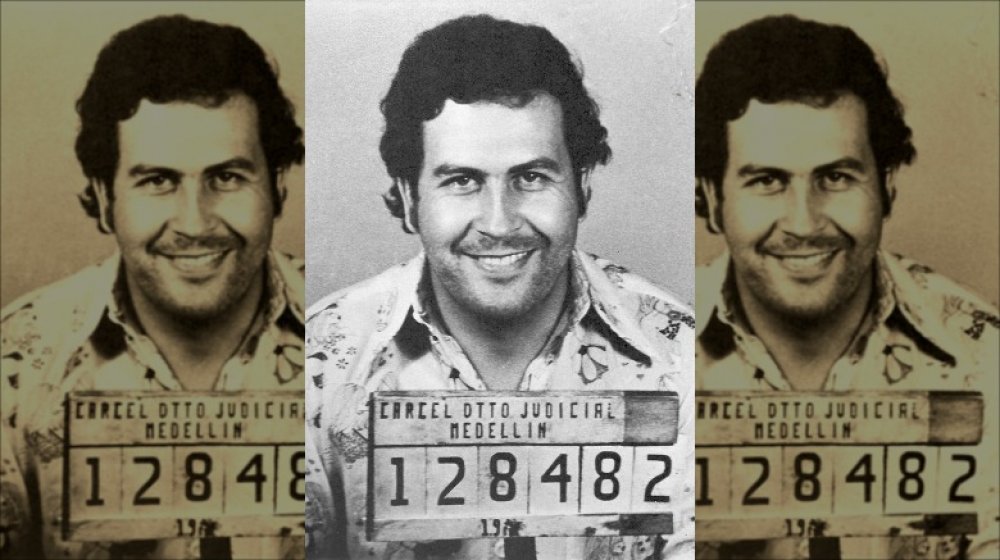Myths About Pablo Escobar You Can Stop Believing
Netflix's true-crime series, Narcos, weaves a tale of ruthless brutality centering around the Colombian drug trade. A grimy thread running through the whole series leads back to one Pablo Escobar, who may well be history's Mona Lisa of truly nasty pieces of work. Jon Lee Anderson reports for the New Yorker that, at the height of his infamy, Escobar was responsible for a ridiculous eighty percent of the cocaine entering the US, and was worth a frosty three billion dollars and change. As the popular Netflix TV show recounts, he also just so happened to leave a trail of murderous deeds in his wake as thick and ominous as a fresh line of Colombian Candy.
While the TV show makes a solid effort to treat the subject matter with respect, the process of breaking a complex story down into dramatized entertainment chunks inevitably introduces biases and distortions. Here's one example. In the fourth episode, Escobar tasks a rebel group with attacking the Palace of Justice to destroy some damning records. The incident comes off as Escobar's ruthless gambit to stay above the law. The truth is a bit foggier than that though, according to Colombia Reports, with the Colombian military almost certainly escalating the violence. The military may even have started the fire in the ensuing mayhem. But where's the compelling moment of righteous outrage in real life's narrative murkiness?
This is just one of many similar moments of historical "line-straightening" the show employs to build a tellable story. These myths are there to neatly increase the contrast on Escobar's villainous portrait, just to make the story as fun as possible.
What's with the soft-soap?
In some ways, the Netflix series is also remarkably forgiving of Escobar. There are relatable aspects to his fictionalized personality that those close to him say just weren't present in real life — for example, the show leaves out his reported penchant for underage girls and virgins, per the Daily Beast. What is that about? Here's one theory.
Evil is interesting. If Walter White had stuck to high school chemistry, it's unlikely he'd have much of a story to tell. But what makes a black-hearted character more interesting? A little dash of light. Even Big Bad Darth had his dramatic moment of redemption. Even face-eating Hannibal Lecter hated Nazis. Netflix's dramatized rendering of Escobar etches that redemptive flourish in the character's fierce protectiveness toward his kids. His revenge-ridden rampage when Cali nearly kills his spawn reveals a man who can be driven by higher ideals — maybe even love. Unfortunately, Escobar's Darth moment is almost certainly 100 percent distilled banana oil. Escobar routinely exposed his children to risk, actively subjecting them to a life of fear, deprivation, and peril. Escobar's son, Juan, is on record as saying that his father was both crueler and more relentless than the Netflix portrayal.
Sometimes a villain lacks that desirably discordant note of nobility, and it falls to the story-tellers to ... well... make something up.

